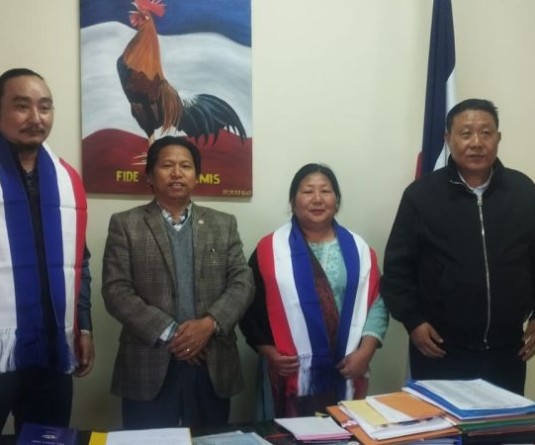
‘Preparedness for Reducing Emissions from Deforestation and Forest Degradation’
Our Correspondent
Kohima | August 29
In a effort to create financial value for carbon stored in forests, reduce emissions from forested lands and induce investment for sustainable development, a state-level workshop about ‘Preparedness for Reducing Emissions from Deforestation and Forest Degradation’ (REDD+) was held in Kohima today, Wednesday, August 29. The workshop was jointly organized by TERI New Delhi and State’s department of Forest.
Speaking at the occasion, Principal Chief Conservator of Forests Dr. CL Goel informed that REDD+ goes beyond deforestation and forest degradation. Their work includes conservation, sustainable management of forest and enhancement of forest carbon stocks. “REDD Plus and sustainable forest management can prove to be important tools through which the state of Nagaland can reap benefits of the co-benefits of forests”, he said.
He said REDDplus could provide an opportunity to address the issue of deforestation and forest degradation in Nagaland with deforestation being the single largest source with 17% of Global Greenhouse Gas (GHG) emissions. It has been argued that reducing emissions from deforestation and degradation cold be a low cost and effective strategy to mitigate climate change, he said adding REDD could also generate benefits in the form of conservation and provide livelihood improvement for local communities.
Senior Fellow Dr. JV Sharma said TERI is initiating a pilot study in Nagaland in collaboration with the forest department to develop methodology which can be used in REDDplus projects, keeping all important elements such as governance, methods of carbon assessment through GIS remote sensing technology, dependence on forests and also the maintenance of other eco-system services.
The kind of forest governance needed for REDDplus in Nagaland is already in place and also has age-old customs and traditions for forest dependence and forest management, he said. “The communities in Nagaland are also conserving biodiversity through CCAs and Sacred groves, but a combination of scientific knowledge along with their traditional wisdom is needed for the implementation of REDD Plus in Nagaland”, Dr. Sharma further maintained.
REDD could generate co-benefits in form of conservation and livelihood improvement for local communities, said M Lokeswara Rao, APCCF and Nodal Officer REDD Plus. The workshop was attended by nearly 70 officers from various departments including APCCF, CCFs, CFs, DFOs, ACFs, and officers from NEPED, Land resources Department, Bio-resource and the Bamboo Mission.





